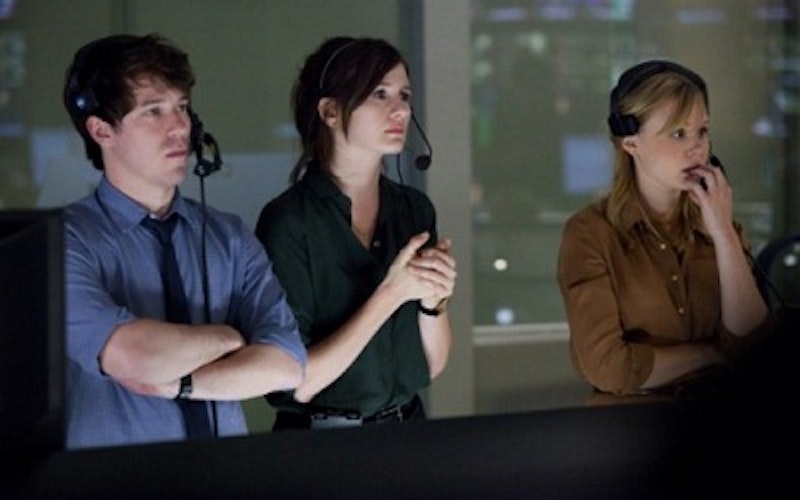
TV
How The Newsroom takes shortcuts to greatness
I had told myself I wouldn't write about Aaron Sorkin's latest series, The Newsroom. It was probably around the fifth review accusing Sorkin of self-indulgent windbaggery that I decided I couldn't bear to unsheathe my critical wrath against someone I so recently considered a hero.
Because make no mistake, I'm a true-blue Sorkin fan. Not only did I thoroughly enjoy The Social Network and Moneyball, not only do I regularly quote Sports Night and The West Wing, but I still have the entire season of Studio 60 on the Sunset Strip on my hard drive, and I nearly wept after coming across this video of Sorkinsims.
I do love a phrase well-turned, and in that arena, Sorkin’s rat-a-tat dialogue is akin to Mozart or Ellington.
But there's more to a good television series than well-tuned dialogue. You also need character development, story, setting and a sense of meaning. And it’s in that last area that, to these eyes, The Newsroom falls flat. (I know, I know. Said I wouldn’t do it, but here I am anyway.)
There's more to a good television series than well-tuned dialogue.
It occurred to me, as I watched a free stream of the pilot, that The Newsroom is a lot like porn: it may have its momentary pleasures, but they’re manipulative. And the show ultimately fails to deliver on the promise of its premise.
The biggest triumph of The West Wing was its unbridled sense of hope and optimism. For many in my generation, it was the first show that made us care about politics, because it was obvious that these characters cared. They weren’t perfect, but they cared. The West Wing was a picture of How Government Could Be and, by extension, How People Could Be.
And that idealism purports to live on in The Newsroom, in the form of milquetoast-turned-iconoclast television anchor Will McAvoy (Jeff Daniels) and the dutiful staff that nobly supports him in an attempt to transform the electorate via smart, hard-hitting journalism.
But by deliberately placing the show in the recent past, dealing with actual events that have already occurred, Sorkin rigs the game. A major plot point in the pilot, for example, is how they decided to cover the BP oil spill. Their virtue was in going all in on the spill angle when other news organizations thought it was a minor story about an explosion and a search-and-rescue. The key issue was the reliability of a source inside who was feeding info to one of the staff - a convenient development, for sure.
Sorkin endows the characters with a level of wisdom and expertise on news topics that we all understand now in retrospect, but he gives it to them while it's still unfolding. As a result, The Newsroom stacks the deck in its favor when it comes to making all the right choices about how the news should be covered. What results is a worldview that says making hard-hitting, balanced televised journalism is as simple as deciding to do so. Which implies that if/when TV news is not done this way, it's because news staffs and audiences alike are too selfish and stupid to even want better.
That’s what reminds me of the porn angle. The Newsroom is pure fantasy. I applaud the idealism that drives the show, but its air of nobility smacks of self-righteousness, of the belief that we can do great things just by declaring we can be great. But there are no shortcuts to greatness. Jesus told us that the way to be great is to be a servant. In contrast, Sorkin’s recipe exchanges servanthood for editorial confidence bordering on clairvoyance.
Obviously, The Newsroom is nowhere near as destructive as actual porn, yet unrealistic expectations come in all shapes and sizes. So despite my ardor for delightful dialogue - this just in! - I’ll pass.
What Do You Think?
- Is the idealism of The Newsroom something that can be modeled or is it an unattainable fantasy?
- In general, does idealistic fiction give us something to strive for - in the sense of God's intention for us - or does it raise unrealistic expectations for us as fallen beings?
- What other recurring themes have you noticed in Aaron Sorkin projects?
Topics: TV, Culture At Large, Arts & Leisure, News & Politics, Media